Microplastics Training
Archived: Tuesday, March 7, 2023
Sponsored by: Interstate Technology and Regulatory Council
In response to one of the biggest emerging environmental concerns, ITRC formed the Microplastics Team in 2021 to develop the Microplastics Guidance Document. Plastics have become pervasive in modern life and are now used in a wide range of commercial and industrial applications. Microplastics may result from the degradation and fragmentation of larger plastics, or they may be intentionally produced for specific applications and products. Regardless of their origin, microplastics are now ubiquitous in our environment. Because of their small size and pervasiveness in the environment, microplastics, along with any other contaminants which are adhered to the microplastics, may be inadvertently consumed by humans and other organisms.
The online ITRC Guidance Document (available in February 2023) is geared toward an audience with reasonable level of scientific understanding, but not microplastic-specific knowledge. The guidance provides a user with information on microplastics and the state of the applied science without having to go to the scientific literature.
The target audience for the guidance and this training course includes state regulators and environmental consultants, as well as community and tribal stakeholders.
The guidance and this associated training course uses a conceptual site model to navigate microplastics in the environment and explore the following general areas:
- An introduction to microplastics, their sources, and worldwide distribution
- The pathways through which microplastics can enter and travel in the environment and their distribution in various media (water, soil, sediment, air, and biota)
- A current look at the most common techniques and best practices for sampling and analyzing microplastics
- Potential human health and ecological risks associated with microplastics in the environment
- An overview of existing regulations related to microplastics and macroplastics at the state, federal, and international levels
- Examples of prevention and mitigation strategies and best management practices to reduce microplastics from entering the environment and the emerging technologies to abate, treat, and remediate microplastics once they exist in the environment
- Identification of data gaps and the need for further research
- Several case studies illustrating a range of current microplastics-related topics
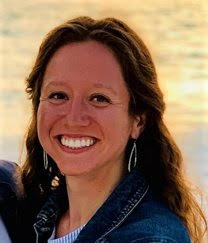 Alia Enright, TRC (aenright@trccompanies.com)
Alia Enright, TRC (aenright@trccompanies.com)
Alia Enright's environmental engineering career at TRC began 8 years ago as an intern in Madison, WI, and has taken her to TRC's Milwaukee and Denver offices. Her technical focus is in the investigation and remediation of contaminated sites. Her main responsibilities include site investigation and sampling of a variety of media; investigations involving emerging contaminants; technical reporting; remedial options/feasibility study engineering evaluations; and project management. Alia leads TRC's internal CORE Microplastics Sub Team and has presented several workshops on microplastics. Alia earned her bachelor's degree in Geological Engineering from the University of Wisconsin-Madison and is a registered PE in Colorado and Wisconsin.
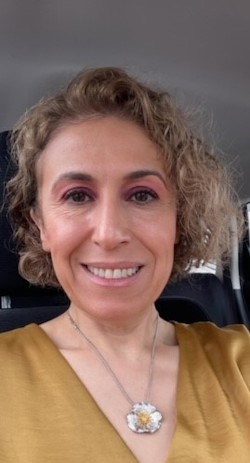 Yasemin Kunukcu, Roux, Inc. (ykunukcu@rouxinc.com)
Yasemin Kunukcu, Roux, Inc. (ykunukcu@rouxinc.com)
Yasemin Kunukcu is a Technical Director at Roux Inc. in Somerset, New Jersey. She has more than 20 years of experience in the design and implementation of site-specific remedial solutions in soil and groundwater contaminated with emerging contaminants. Her focus on emerging contaminants over the last two decades has promoted awareness and improved the understanding of the sources, occurrence, fate and transport, and behavior of these compounds (including PFAS, microplastics, 1,4-dioxane, MTBE and other fuel oxygenates, perchlorate, PPCPs, and others) in natural and treatment environments.
She is a current member of the Interstate Technology and Regulatory Council [ITRC] PFAS and Microplastics teams. Starting 2007, she was heavily involved as a co-leader for the treatment technologies subgroups during the development of the National Groundwater Association (NGWA), ITRC In-situ Injection Optimization Strategies and ITRC PFAS guidance documents. She routinely provides litigation support service including forensic investigations, source identification, and expert opinions regarding treatment technologies of emerging contaminants including PFAS as well as cost allocation and remedial cost estimate. Yasemin holds a PhD in Chemical Engineering from the Aegean University (Turkey) and is a registered PE in New York.
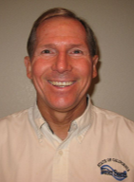 Alex MacDonald, Emeritus (alexmacd836@gmail.com)
Alex MacDonald, Emeritus (alexmacd836@gmail.com)
Alex MacDonald is a former senior engineer in the technical support section of the Cleanup Unit at the Central Valley Regional Water Quality Control Board in Rancho Cordova, California. He worked at the Water Quality Control Board from 1984 - 2021. He primarily worked on cleanup of the Aerojet site in Rancho Cordova, California and on the cleanup at McClellan Air Force Base. Alex also worked on cleanup at underground and above ground storage tanks sites; permitting and inspection of landfill and waste disposal to land sites; regulating application of biosolids sites; regulating underground injection; regulating NPDES sites that include municipal wastewater treatment plants, power plants, industrial facilities, and groundwater treatment facilities; and permitting and inspecting dredging projects. Alex was a member of the Interstate Technical Regulatory Council (ITRCC) Perchlorate team, DNAPL and Fractured Rock Teams. He is currently a member of the ITRC PFAS, Microplastics and Risk Communication Teams. Alex earned a bachelor's degree in Civil/Environmental Engineering from Stanford University in Palo Alto, California in 1977 and a master's degree in Civil/Environmental Engineering from Sacramento State University in Sacramento, California in 1987. He is a registered Professional Engineer in the State of California.
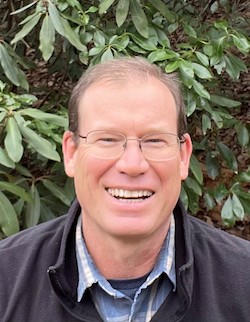 Judd Mahan, Tetra Tech (judd.mahan@tetratech.com)
Judd Mahan, Tetra Tech (judd.mahan@tetratech.com)
Mr. Mahan is a Senior Scientist and Project Director with over 20 years of scientific consulting experience. Mr. Mahan has extensive experience in project and program management, site investigation, remediation, permitting, and regulatory compliance projects. He has led and provided technical support in environmental assessment and remediation for large utilities, construction projects, industry, and petroleum distribution facilities. He is active with the Interstate Technology and Regulatory Council (ITRC) where he is a team member on the Contaminants of Emerging Concern and the Microplastics Outreach Toolkit teams. Judd earned bachelor's degrees in Geology (2002) and History (1996) at Auburn University in Auburn, Alabama. He is expected to complete a master's in business administration (MBA) from the University of North Carolina at Pembroke in 2023. Judd is a licensed professional geologist in Georgia, North Carolina, South Carolina, and Tennessee. He is also a Certified Environmental Professional (CEP) with the Academy of Board Certified Environmental Professionals. Judd's current work at Tetra Tech includes environmental permitting support for projects ranging from alternative energy and highway construction to federal port facilities in the Charleston, SC area.
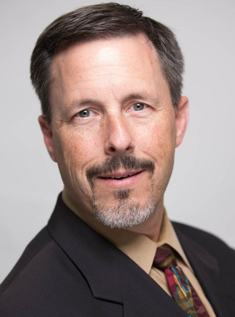 Todd Miller, Kennedy/Jenks Consultants, Inc. (ToddMiller@kennedyjenks.com)
Todd Miller, Kennedy/Jenks Consultants, Inc. (ToddMiller@kennedyjenks.com)
Todd Miller is a Senior Hydrogeologist and Vice President with Kennedy/Jenks Consultants, Inc., in Walnut Creek, CA. Mr. Miller has 33 years of professional experience in investigating and remediating a wide variety of contaminated sites. In his current role, he provides technical and managerial oversite of staff, and manages projects for several large industrial and municipal clients. His technical expertise includes hydrogeologic studies, chemical fate and transport, contaminated groundwater characterization and remediation, characterization and remediation strategy development and implementation, and regulatory interaction/negotiation. He earned a bachelor's degree in Oceanography from Humboldt State University in 1987, and in Geology in 1989. He is a registered Professional Geologist in California and Oregon and a Certified Hydrogeologist in California.
 Dr. Usha Vedagiri, WSP Environment and Infrastructure Solutions (usha.vedagiri@wsp.com)
Dr. Usha Vedagiri, WSP Environment and Infrastructure Solutions (usha.vedagiri@wsp.com)
Dr. Usha Vedagiri is a Principal Risk Assessor with WSP Environment and Infrastructure Solutions, with a focus on emerging contaminants including Per- and polyfluoroalkyl substances (PFAS), Microplastics and petroleum hydrocarbon metabolites. She is based in California and has over 25 years of strategic and technical consulting experience in human health and ecological risk assessment. She is particularly interested in health risk assessments for emerging contaminants and tracks technical and regulatory developments in Microplastics and PFAS. She provides regulatory updates, compliance and proactive planning assistance to clients regarding Microplastics and has delivered multiple presentations on the distribution and potential health impacts of Microplastics. She has a Ph.D in Environmental Science from Rutgers University and has been actively involved with multiple ITRC teams since 2015.
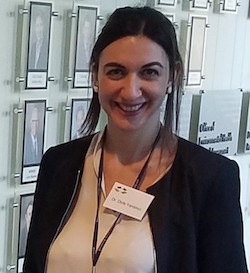 Dicle Yardimci, Ph.D., California Department of Toxic Substances Control (dicle.yardimci@dtsc.ca.gov)
Dicle Yardimci, Ph.D., California Department of Toxic Substances Control (dicle.yardimci@dtsc.ca.gov)
Dicle Yardimci is a Senior Hazardous Substances Engineer with the California Department of Toxic Substances Control, Safer Consumer Products Program since 2017. Her expertise includes seeking safer alternatives to harmful chemicals that are found in consumer products, conducting information requests to industry that involves trade secret and confidential business information, engaging with a variety of stakeholders including state and federal government agencies, local government agencies, non-profit organizations, research institutions, overburdened communities with environmental justice issues, and the public. She has several years of experience in working as a Process Technology Development Engineer in high-tech, semiconductor industry with focus on improving yield, resolving process issues, and troubleshooting complex semiconductor equipment in a fast-paced environment to meet customer commitments. Dicle has extensive hands-on experience in working with hazardous chemicals, proper hazardous waste disposal, design of experiments, and troubleshooting laboratory equipment. Her core expertise is on surface chemistry, nanomaterials, and catalyst design for the oil and gas industry. Dicle is the author and co-author of several technical articles published in peer-reviewed journals and technical government reports. She has presented at several conferences, universities, stakeholder meetings, executive management briefing meetings, and public workshops. Dicle has conducted bill analysis and involved in the rulemaking of seeking safer alternatives to harmful chemicals in the toxic reduction and environmental protection fields. Dicle is a member of ITRC Microplastics team as a volunteer author and trainer since 2020. Dicle earned a Bachelor's degree in Chemical Engineering from Middle East Technical University in Turkey in 2008; a Master of Science degree in Chemical Engineering and Materials Science from University of California, Davis (UC Davis) in 2009; and a Ph.D. degree in Chemical Engineering and Materials Science from UC Davis in 2013.
 Valerie Hanley, California Department of Toxic Substances Control (valerie.hanley@dtsc.ca.gov)
Valerie Hanley, California Department of Toxic Substances Control (valerie.hanley@dtsc.ca.gov)
Dr. Valerie Hanley is a Senior Toxicologist in the Human and Ecological Risk Office at the California Department of Toxic Substances Control (DTSC) in Sacramento, CA and the co-leader of the ITRC Microplastics Team. Valerie has been with DTSC since 2008 and an active participant of ITRC since 2015. Valerie evaluates human health risk assessments for a variety of sites and is involved in DTSC's Safer Consumer Products program. Valerie earned a Bachelor's degree in Molecular, Cellular, and Developmental Biology from The University of California (UC) Santa Cruz in 2001 and her PhD in Comparative Pathology from UC Davis in 2007. She completed a postdoctoral fellowship at UC Davis in Respiratory Toxicology in 2008.
Moderator:
ITRC Training Program (itrc@itrcweb.org)
Webinar Slides and References:
Additional Resources:
Help & FAQs
- Frequently Asked Questions
- Content Questions?
Call ITRC Training Program at 202-266-4932 or itrc@itrcweb.org - Technical Problems?
Leave us a comment - Cancel Your Registration
- My Participation Records
- CEU Credits and PDHs
Zoom Resources
Before Webinar Day
This seminar will be delivered through Zoom. Participants are encouraged to update to the latest version of the Zoom application for the best experience.
If you are unable to install the Zoom application, most functions will be available if you join just using a modern web browser such as Chrome, Edge or Firefox. We strongly encourage you to run the Zoom Meeting Test prior to attending this webinar. Technical support on the day of the webinar will be very limited and subject to significant delays.
Backup Conference Call
If you cannot participate using online audio, you may join the optional call in line. After checking in for the live event using the instructions listed below, you will see several options to participate. Please click the links in option 4 to follow along by phone and obtain the call in number. If you cannot access the phone number, you may request the call in line from the event moderator in the Q&A or send an email to Jean Balent at balent.jean@epa.gov
Click on "Join Webinar" at the top of this screen, enter your exact first and last name as you registered and enter the number of people attending at your location (including yourself). You should then be taken to the Zoom meeting room. Join with Zoom Application: For those joining with the Zoom application, you may be prompted to sign with a zoom account or join as a guest without signing in.
If joining as a guest, you will be prompted to enter your name and email address. Remember your name, image, video or voice may be visible to others in the live event. When done, click "Join" When it is time for the live event to start, the meeting host will admit you to the live Zoom meeting. Join via web browser (without the Zoom Application): For those joining with a web browser, you may close any pop ups prompting you to download the Zoom app. The next window will allow you to enter your name (first name and last name) and check the box that you are not a robot. Click the blue join button. You may also be asked to provide your email address before joining the room. Remember your name, image, video or voice may be visible to others in the live event. When done, click "Join" When it is time for the live event to start, the meeting host will admit you to the live Zoom meeting. You may need to periodically refresh the browser window to confirm if the host has admitted you. The presenters will control what slide you are viewing. You may submit questions online for the instructors to answer during the webinar by typing in the "Q&A" area. It is not necessary to wait until the question and answer periods to submit questions. At the end of the webinar you will be guided to our feedback form and links to additional resources, including the complete presentation. These links will remain active after the webinar. Provided for your convenience. Importing or accepting the invitation within this iCalendar file is not required, and declining the invitation does not cancel your registration. For additional information on iCalendar, please see our
iCalendar Help It is EPA's policy to make reasonable accommodation to persons with disabilities wishing to participate in the agency's programs and activities, pursuant to the Rehabilitation Act of 1973, 29 U.S.C. 791. Any request for accommodation should be made to ITRC Training Program at 202-266-4932 or itrc@itrcweb.org, preferably one week or more in advance of the seminar, so that EPA will have sufficient time to process the request. EPA would welcome specific recommendations from requestors specifying the nature or type of accommodation needed. EPA welcomes specific recommendations from requestors specifying the nature or type of accommodation needed. Please note that CLU-IN provides both alternate phone call-in options and closed captioning for all webinars, and requests for these specific accommodations are not necessary.
Webinar Day, Checking In
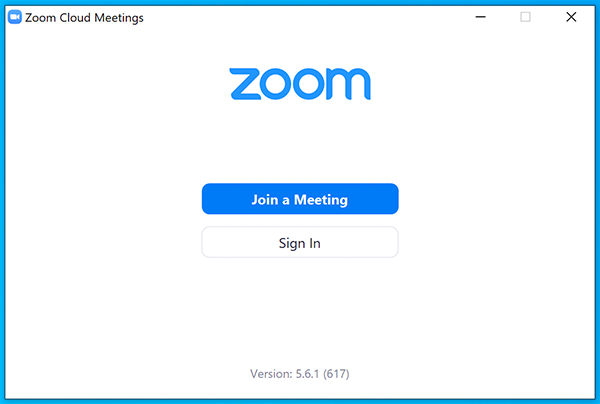
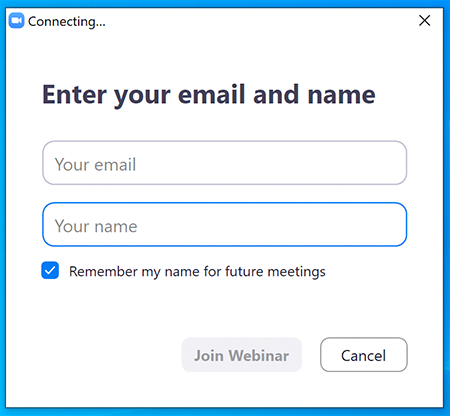
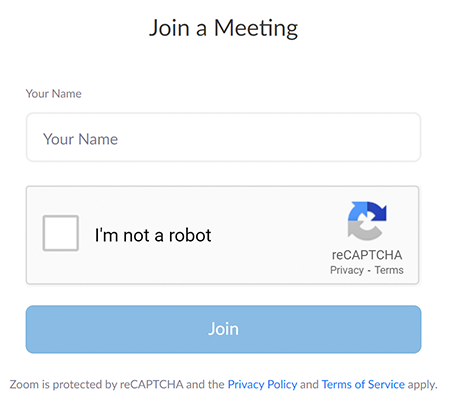
Moving Through Slides
Feedback & Links to Additional Resources
iCalendar File
Rehabilitation Act Notice for Reasonable Accommodation
Rehabilitation Act Notice for Reasonable Accommodation
It is EPA's policy to make reasonable accommodation to persons with disabilities wishing to participate in the agency's programs and activities, pursuant to the Rehabilitation Act of 1973, 29 U.S.C. 791. Any request for accommodation should be made to ITRC Training Program at 202-266-4932 or itrc@itrcweb.org, preferably one week or more in advance of the webinar, so that EPA will have sufficient time to process the request. EPA would welcome specific recommendations from requestors specifying the nature or type of accommodation needed. EPA welcomes specific recommendations from requestors specifying the nature or type of accommodation needed. Please note that CLU-IN provides both alternate phone call-in options and closed captioning for all webinars, and requests for these specific accommodations are not necessary.
Webinar Recording
By participating in this CLU-IN webinar, you automatically agree to authorize recording of audio and visual content presented during this live event and consent to subsequent use of this recording in the public domain by the U.S. Environmental Protection Agency. This recording may include questions, comments and poll responses provided by you during the live event in addition to your name, voice, image or likeness. This recording will be made available after the conclusion of the live event as part of the CLU-IN webinar archives, and will remain available indefinitely. If you do not wish to consent to the recording, please do not join the live event, and contact Jean Balent at 202-566-0832 or balent.jean@epa.gov to discuss your concerns.
Content Disclaimer
This webinar is intended solely to provide information to the public. The views and opinions expressed as part of this webinar do not necessarily state or reflect those of the U.S. Environmental Protection Agency. It is not intended, nor can it be relied upon, to create any rights enforceable by any party in litigation with the United States, or to endorse the use of products or services provided by specific vendors. With respect to this webinar, neither the United States Government nor any of their employees, makes any warranty, express or implied, including the warranties of merchantability and fitness for a particular purpose, or assumes any legal liability or responsibility for the accuracy, completeness, or usefulness of any information, apparatus, product, or process disclosed, or represents that its use would not infringe privately owned rights.

